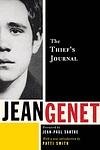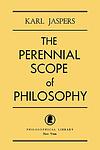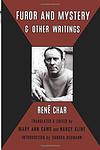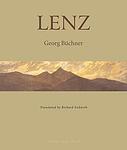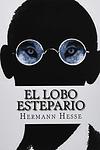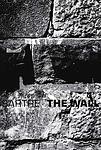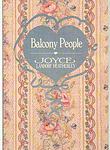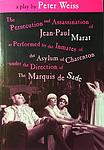The Greatest French, German "Existentialist" Books of All Time
Click to learn how this list is calculated.
This list represents a comprehensive and trusted collection of the greatest books. Developed through a specialized algorithm, it brings together 305 'best of' book lists to form a definitive guide to the world's most acclaimed books. For those interested in how these books are chosen, additional details can be found on the rankings page.
Genres
Existentialist literature is a genre that explores the meaning and purpose of human existence, often through the lens of individual experience and subjective perception. These books often delve into themes of freedom, choice, and responsibility, and may challenge traditional notions of morality and societal norms. Existentialist literature can be introspective and philosophical, and may offer readers a unique perspective on the human condition and the search for meaning in a complex and often chaotic world.
Countries
Date Range
Reading Statistics
Click the button below to see how many of these books you've read!
Download
If you're interested in downloading this list as a CSV file for use in a spreadsheet application, you can easily do so by clicking the button below. Please note that to ensure a manageable file size and faster download, the CSV will include details for only the first 500 books.
Download-
26. Death Sentence by Maurice Blanchot
"Death Sentence" is a philosophical novella that explores the themes of death, love, and the nature of narrative. The story is divided into two parts, each focusing on a different protagonist who is dealing with the impending death of a loved one. Through their experiences and internal monologues, the novel delves into the complexities of human emotions and the existential dread associated with mortality. The narrative is further complicated by the author's experimental writing style, which challenges traditional storytelling conventions and encourages readers to question their understanding of reality.
The 2454th Greatest Book of All Time -
27. The Glass Bees by Ernst Jünger
"The Glass Bees" is a novel set in a future dystopian society, where technology has advanced to the point where robotic bees are being used for honey production. The story follows a former cavalryman who, desperate for employment, accepts a job from a powerful technocrat to test out these mechanical bees. As the protagonist gets more involved in the technocrat's world, he begins to question the morality and implications of such advancements, leading to a deep exploration of the intersection between technology and nature, and the potential consequences of unchecked technological progress.
The 2454th Greatest Book of All Time -
28. The Afternoon of Monsieur Andesmas by Marguerite Duras
"The Afternoon of Monsieur Andesmas" is a poignant exploration of memory, waiting, and the passage of time set in a small Mediterranean village. The narrative focuses on Monsieur Andesmas as he waits on a hillside for a contractor to discuss building a terrace for his daughter. As he waits, various interactions with the local people and his internal reflections reveal the complexities of his past relationships and the deep undercurrents of emotion tied to his family and his life choices. The novel delves into themes of guilt, regret, and the haunting nature of past decisions, all encapsulated in the quiet, tension-filled atmosphere of a single afternoon.
The 2832nd Greatest Book of All Time -
29. The Thief's Journal by Jean Genet
The book is a fictionalized account of the author's experiences in the criminal underworld of early 20th-century Europe. It is a narrative that delves into the life of a man who embraces his identity as a thief and a homosexual, exploring the intersections of crime, sexuality, and social defiance. The protagonist navigates through various relationships with fellow outcasts and criminals, while also confronting the moral codes of society. The work is known for its poetic and introspective prose, as well as its exploration of themes such as betrayal, freedom, and the search for beauty within the margins of society.
The 2881st Greatest Book of All Time -
30. The Gay Science by Friedrich Nietzsche
The book in question is a philosophical work that delves into the author's ideas on morality, truth, and the nature of human existence. It is known for its poetic and aphoristic style, presenting a critique of contemporary culture and the Western intellectual tradition. The author introduces the concept of the "eternal recurrence" and famously proclaims the "death of God," challenging readers to confront the implications of a world devoid of divine authority and to embrace the potential for creating their own values. The work is a celebration of art, science, and the joyous wisdom that comes from living a life of intellectual inquiry and creative freedom.
The 2899th Greatest Book of All Time -
31. The Perennial Scope Of Philosophy by Karl Jaspers
The book in question explores the enduring nature of philosophical inquiry, examining how it transcends temporal and cultural boundaries to address fundamental questions of existence, knowledge, and ethics. The author argues that philosophy is not confined to any particular era or dogma but is a continuous pursuit of truth that evolves with human thought while remaining rooted in the quest for universal understanding. Through a critical examination of historical philosophical movements and their contributions to the ongoing dialogue, the work emphasizes the importance of philosophy in providing a framework for individuals to confront the mysteries of life and the universe, encouraging readers to engage in their own philosophical contemplation.
The 3285th Greatest Book of All Time -
32. Existentialism And Humanism by Jean Paul Sartre
The book is a philosophical work that presents the core tenets of existentialist thought, emphasizing the individual's unique position as a self-determining agent responsible for the authenticity of their choices and actions. It argues that human existence precedes essence, meaning that people first exist without predetermined purpose and must then define themselves through their decisions and commitments. The text also addresses the implications of this freedom, including the weight of responsibility it places on individuals and the consequent anxiety, as well as the absence of a universal moral code. It concludes with a discussion on the role of human solidarity and the ethical considerations that arise from our interconnectedness with others.
The 3285th Greatest Book of All Time -
33. The Courage to Be by Paul Tillich
"The Courage to Be" is a philosophical work that explores the concept of courage in the face of existential threats and anxieties. The author argues that courage is not simply a bold act in the face of physical danger, but also the strength to affirm one's own being in spite of non-being, despair, and death. The book also discusses the role of God as the ultimate source of courage and suggests that embracing our existential anxieties can lead to self-affirmation and spiritual growth.
The 3469th Greatest Book of All Time -
34. Tropisms by Nathalie Sarraute
"Tropisms" is a collection of 24 short sketches that delve into the hidden undercurrents of human interactions and the subtle, often unnoticed movements of thought and feeling. The book, often considered a precursor to the nouveau roman literary movement, explores the mundane aspects of everyday life and the psychological complexities beneath them, using a unique, impressionistic style. The term 'tropisms' refers to the instinctive reactions of humans, similar to the biological responses of plants to stimuli.
The 3651st Greatest Book of All Time -
35. Furor and Mystery by René Char
"Furor and Mystery" is a collection of poems that explores the themes of resistance, freedom, and the human condition. The author, a member of the French Resistance during World War II, uses his experiences to craft evocative and powerful verse. The poems are filled with metaphors and imagery, often drawing on nature and the Provencal landscape to illustrate the struggle against oppression and the search for truth.
The 3665th Greatest Book of All Time -
36. The Twilight of the Idols and The Antichrist by Friedrich Nietzsche
"The Twilight of the Idols and The Antichrist" is a philosophical work that critiques the moral and religious values of Western society. The author argues that these values, particularly those of Christianity, are not only false but harmful to society, as they suppress human instincts and hinder humanity's progress. He proposes a new moral system based on individual strength, intellectual honesty, and the affirmation of life, and criticizes the belief in an afterlife. The book is a radical critique of established religion and morality, and a call for a reevaluation of values.
The 3802nd Greatest Book of All Time -
37. Lenz by Georg Buchner
"Lenz" is a novella that explores the mind of Jakob Michael Reinhold Lenz, a historical figure and playwright, during his descent into madness. The narrative presents a detailed account of Lenz's mental state as he struggles with depression, anxiety, and hallucinations while living in the mountains. It provides a profound look into the human psyche and the effects of isolation and mental illness.
The 3802nd Greatest Book of All Time -
38. El Lobo Estepario by Hermann Hesse
The novel explores the profound loneliness and existential despair of a middle-aged man who feels alienated from bourgeois society. Struggling with a dual nature of being both man and wolf, he embarks on a journey of self-discovery that leads him through surreal experiences and encounters with various characters who challenge his perspectives on life, love, and spirituality. Through these experiences, he confronts his own psyche and the complexities of human existence, ultimately seeking a path to spiritual enlightenment and personal transformation.
The 4694th Greatest Book of All Time -
39. Heartsnatcher by Boris Vian
The novel is a surreal and satirical tale set in a bizarre town where the eccentric inhabitants live under the oppressive rule of a despotic and whimsical figure. The narrative follows the lives of the townspeople, who are subjected to absurd and often cruel whims that challenge their sanity and morality. As the story unfolds, the characters confront the absurdity of existence, the nature of love and desire, and the struggle for individual freedom against authoritarian control. The book combines elements of fantasy, dark humor, and existential philosophy, creating a unique and thought-provoking exploration of human nature and society.
The 5228th Greatest Book of All Time -
40. The Arcades Project by Walter Benjamin
"The Arcades Project" is a comprehensive and intricate examination of 19th-century Parisian life, focusing on the iron-and-glass shopping arcades that emerged as early forms of the shopping mall. Compiled from a vast array of notes and writings, the work delves into the city's architectural and urban transformations, exploring how these spaces influenced aspects of culture, politics, and everyday life. Through a montage of quotations, reflections, and critical commentary, the book presents a fragmented yet profound analysis of modernity, capturing the intersection of history, philosophy, and social theory.
The 5237th Greatest Book of All Time -
41. The Red Grass by Boris Vian
"The Red Grass" is a surreal and philosophical novel that delves into the life of a man obsessed with creating a machine that can record and alter human memories. Set in a bizarre and shifting world that defies the constraints of time and space, the protagonist navigates through a series of existential crises and encounters with eccentric characters, all while grappling with the implications of his invention. The narrative explores themes of reality, identity, and the nature of existence, challenging the reader to question the very fabric of their perceptions and the consequences of tampering with the human mind.
The 5240th Greatest Book of All Time -
42. The Wall by Jean Paul Sartre
The book in question is a profound exploration of the human condition, particularly the psychological turmoil and existential dread faced by individuals confronting their mortality. Set against the backdrop of the Spanish Civil War, it follows the story of a group of prisoners sentenced to death, focusing on their emotional responses and the philosophical introspection of the protagonist. As the characters grapple with the inevitability of their fate, the narrative delves into themes of freedom, the absurdity of existence, and the search for meaning in a seemingly indifferent universe, ultimately presenting a stark examination of the choices one makes when faced with the ultimate end.
The 5268th Greatest Book of All Time -
43. The Birth Of Tragedy by Friedrich Nietzsche
The book in question explores the origins and significance of ancient Greek tragedy. It presents a philosophical critique of the development of art, contrasting the Apollonian elements of structure, order, and beauty with the Dionysian aspects of chaos, passion, and instinct. The author argues that Greek tragedy arose from the synthesis of these two forces, embodying a balance that allowed for the expression of profound existential and metaphysical truths. As the work progresses, it delves into the decline of tragedy due to the influence of Socratic rationalism and the subsequent loss of a vital cultural force capable of confronting the inherent suffering of human existence. The text is both a work of aesthetic theory and a profound inquiry into the nature of human experience.
The 5297th Greatest Book of All Time -
44. Jerome by Jean-Pierre Martinet
"Jerome" is a dark and unsettling novella that delves into the life of its eponymous protagonist, a reclusive, grotesque, and morbidly obese librarian who lives in a decrepit apartment. His existence is one of grim routine and perverse fantasies, as he harbors an unhealthy obsession with the young daughter of his landlord. The narrative explores the depths of Jerome's alienation and psychological torment, painting a bleak portrait of a man consumed by his own depravity and the suffocating confines of his solitary world. The book is a stark examination of loneliness, despair, and the human condition, rendered with a visceral intensity that leaves a lasting impression.
The 5501st Greatest Book of All Time -
45. Sense And Non Sense by Maurice Merleau-Ponty
"Sense and Non-Sense" explores the complex relationship between perception, art, language, and philosophy. The book delves into how human experience and understanding are shaped by our sensory perceptions, which are intertwined with our cultural and linguistic contexts. Through a series of essays, the author critiques and builds upon the ideas of existentialism and phenomenology, arguing that meaning in life is created through our interactions with the world around us. The work challenges traditional notions of objective reality, emphasizing instead the subjective nature of human experience and the inherent ambiguity and uncertainty of existence.
The 5535th Greatest Book of All Time -
46. Minima Moralia by Theodor Adorno
"Minima Moralia" is a collection of aphoristic essays that delve into the intricacies of modern life under capitalism and the pervasive influence of the culture industry. Written during the author's exile in the mid-20th century, the work reflects on the erosion of individuality and the subtle tyrannies of conformity and ideological manipulation. The essays blend philosophy, sociology, and cultural critique, offering profound insights into the human condition and the social dynamics of contemporary society. Through its critical examination of everyday phenomena, the book challenges readers to reconsider their perceptions of normality and ethics in a rapidly changing world.
The 5535th Greatest Book of All Time -
47. What Is Called Thinking? by Martin Heidegger
The book explores the nature of thought and understanding, delving into the essence of what it means to think. The author challenges the traditional views of thinking as mere cognition or problem-solving, proposing instead that true thinking is a profound engagement with being itself. Through a detailed examination of the works of philosophers, poets, and other thinkers, the text invites readers to reconsider the relationship between thought, language, and the essence of humanity, emphasizing the need for authenticity in the process of thinking and the transformative potential it holds for understanding our existence.
The 5535th Greatest Book of All Time -
48. The Balcony by Jean Genet
"The Balcony" is a play set within a brothel that doubles as a fantasy realm for its clients, who act out their grandiose illusions of power as figures like a bishop, a judge, and a general. As a revolution rages in the streets outside, the establishment's madam and her patrons grapple with the nature of authority and reality, blurring the lines between the authentic and the performative. The play delves into themes of identity, societal roles, and the corrupting influence of power, offering a dark, existential critique of the structures that uphold the facade of societal order and the human desire to escape into illusion.
The 5963rd Greatest Book of All Time -
49. Marat Sade by Peter Weiss
The play is a dramatic exploration of power, class struggle, and human suffering set within the confines of an insane asylum in 1808 France. It depicts the Marquis de Sade as an inmate directing his fellow patients in a play about the assassination of Jean-Paul Marat, a radical journalist and politician during the French Revolution. The work delves into the philosophical and political debates between Sade and Marat, representing differing views on revolution, freedom, and the nature of humanity. As the inmates perform, the line between performance and reality blurs, creating a provocative and chaotic theater experience that challenges the audience's perception of madness and reason.
The 6141st Greatest Book of All Time -
50. Creative Evolution by Henri Bergson
"Creative Evolution" is a philosophical work that explores the concept of life and evolution from a metaphysical perspective. The author challenges the traditional mechanistic and teleological interpretations of evolution, proposing instead that life is characterized by a continuous creative process driven by an élan vital, or vital impetus. This force is responsible for the complexity and diversity of life forms and their adaptation through a spontaneous and unpredictable process. The book blends philosophy with scientific insights to argue that evolution is neither purely deterministic nor entirely random, but a creative and dynamic interplay of forces.
The 6768th Greatest Book of All Time
Reading Statistics
Click the button below to see how many of these books you've read!
Download
If you're interested in downloading this list as a CSV file for use in a spreadsheet application, you can easily do so by clicking the button below. Please note that to ensure a manageable file size and faster download, the CSV will include details for only the first 500 books.
Download


